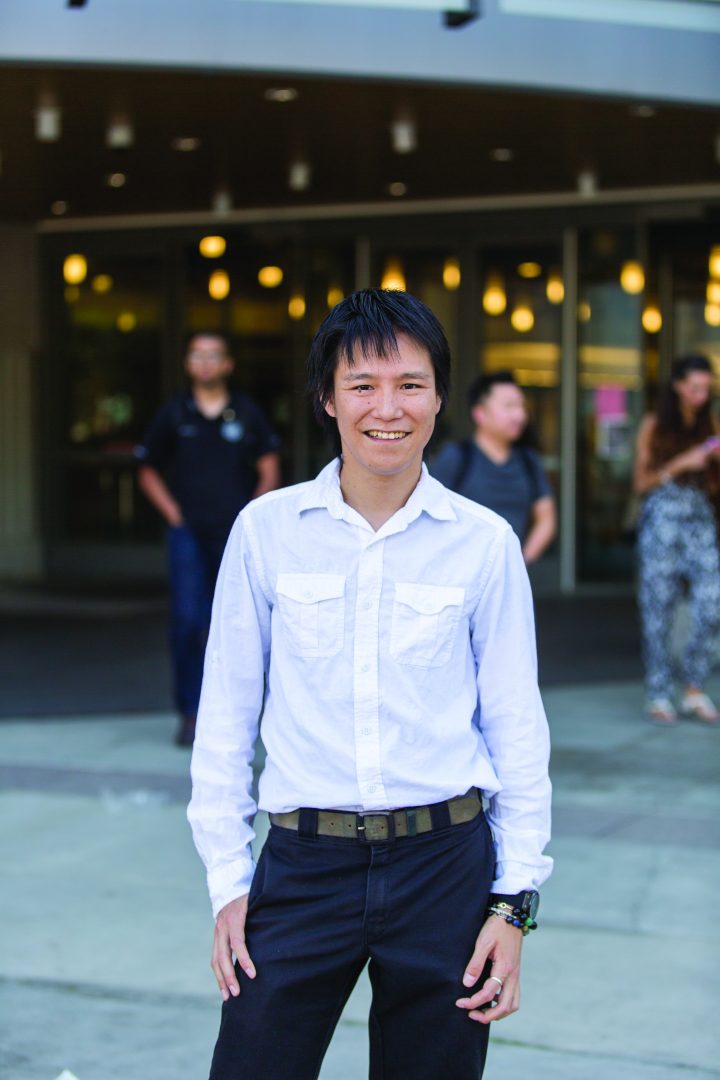For an international student in the U.S., there’s a price to pay.
In most cases, the price is measured in dollar amounts. But there are also underlying problems that challenge international students on a daily basis.
The struggle to fit in, longing for home and financial burdens are just a few common hurdles for international students.
But the challenges haven’t deterred them from flocking into the U.S.
There are 1.13 million foreign students in the U.S., the vast majority in college-degree programs, according to a report released last month by the Department of Homeland Security. That represents a 14 percent increase over last year, almost 50 percent more than in 2010 and 85 percent more than in 2005.
At Fresno State, the number of international students has increased from 397 in the fall of 2010 to 691 in fall 2014, according to the Fresno State enrollment data.
Fresno State business student Makoto Saito left Japan in January 2012 and started his Fresno State journey by learning English as a second language.
Although he missed his friends, family and the food in Japan, Saito said that he remained optimistic about his future in America.
“Everything was new, but I was pretty happy about it,” Makoto said. “I’m the person who can make friends anywhere, so I didn’t have too much of a hard time.”
Looking to step out of his comfort zone and learn about the diverse groups represented at Fresno State, Makoto ventured into clubs and organizations on campus and eventually became president of the International Coffee Hour at Fresno State.
It’s been three years since Makoto left Tokyo, but he said that he has already found comfort in his new home.
He greets dozens of students that pass by him on campus everyday, sometimes even embracing them with a hug, and they respond with a similar gesture.
As an international student who understands the challenges, Makoto has united international students at Fresno State who face similar issues.
Computer Science student Kwong Keong So is thankful for Makoto and other friends that made his transition from Malaysia to the U.S. manageable.
“Makoto is actually a mutual friend of one of my friends here, so I was lucky that I came here, and I already had a friend here,” So said. “She made things easy for me. She prepared plans for me. So I didn’t experience what most international students have to go through if they have to do things from scratch, because I had a friend that assisted me.”
Mansi Agarwal is in her first semester at Fresno State. She came from India and quickly noticed the difference.
Agarwal speaks fluent English, but said her accent is sometimes difficult for Americans to understand.
The cultural difference has also become clear for Agarwal. As strangers walk by her every day and give her a smile, she doesn’t know how to respond.
“In India if you’re just walking down the street and smiling, people will think you’re crazy,” Agarwal said.
Still she has embraced the differences.
“The cultural differences are not the things that will hold you back from talking to people,” Agarwal said. “I think the similarities are the ones that will help you connect to help.”
As a person who likes to explore, Agarwal said Fresno is the perfect place for her.
“I think Fresno is good, because it’s a big city and it’s close to everything,” Agarwal said. “It’s close to LA. It’s close to San Diego. It’s close to San Francisco. Because traveling is fun for me. I believe the person who doesn’t travel is just reading the first page of the book.”
For freshman Karan Singh, coming to the U.S. was a dream come true. But he didn’t expect the challenges he experienced after leaving India.
“I don’t eat meat, so it was difficult for me to find food here,” Singh said. “Almost all the time I have to cook myself. Back in India, I didn’t know how to cook. I always called my mom and said and help me cook this stuff.”
Singh has only been in the United States for four months, but he said he has learned to cook now.
Paloch Pipe Suchato was shocked by the lack of transportation when he first came from Thailand to the United States.
“The public transportation in the U.S., even in the big cities, if you don’t count Chicago and New York, is terrible,” Suchato said. “In Thailand it’s convenient to go everywhere. We have trains, taxi is really cheap, and you can take a boat and go in the river.”




